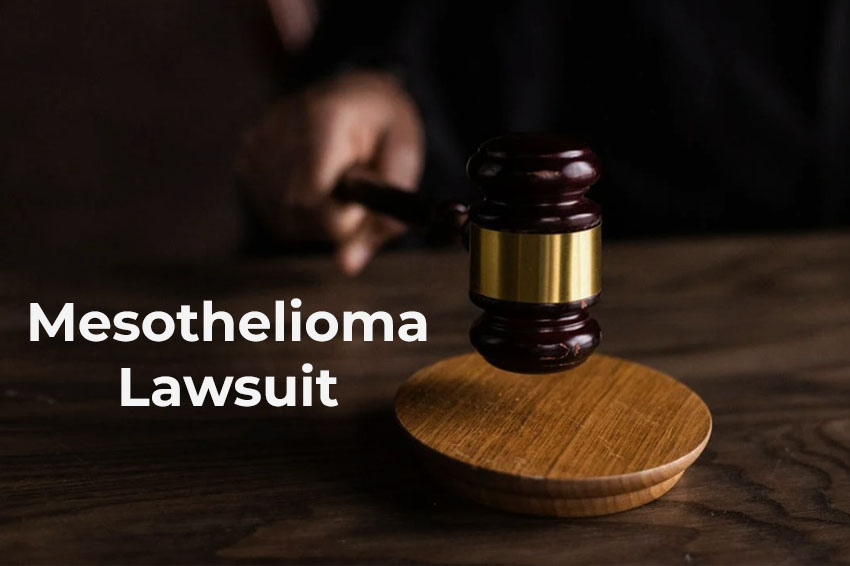Mesothelioma is a lethal form of cancer that occurs due to asbestos exposure. Asbestos is a naturally occurring mineral that was commonly used in the past in construction and other industries for its soundproofing and fireproofing properties. Unfortunately, asbestos fibers can become airborne and be inhaled or ingested, leading to mesothelioma.
If you are diagnosed with mesothelioma, you may wonder if you can file a lawsuit against the firm that exposed you to asbestos. Filing a case can be a complex process. There are multiple things to learn and comprehend before filing a lawsuit.
This blog post will help inform patients and their families about what to expect during a mesothelioma lawsuit.
Here’s a video to help you know more about Mesothelioma Lawsuit:
Read the blog post to learn more about a mesothelioma lawsuit.
Eligibility
The initial step in filing a mesothelioma lawsuit is determining if you are eligible. The answer relies on several elements, including the type of mesothelioma, the severity of the disease, and the state in which you live.
To file a mesothelioma lawsuit, you must be able to prove that your asbestos exposure occurred due to the negligence of another party. Your employer might be held liable if you were exposed to asbestos at work.
If you were exposed to asbestos in a public place, the property owner might be responsible. If you were exposed to asbestos because of the goods you used, the manufacturer of those items might be held accountable.
You must first contact a law firm for a legal consultation to see if you are qualified to file a lawsuit. They will be able to review your case and decide whether or not you have a valid claim.
If you have a claim, they will work with you and assist you throughout the legal process.
File a Claim
An important step in filing a mesothelioma lawsuit is to file a claim with the responsible party. To file a claim, you must first identify the responsible party. It is usually the company that exposed you to asbestos.
Once you have identified the responsible party, you need to gather evidence to support your claim. The evidence can include medical records, eyewitness testimony, and expert opinion.
Once you have collected the evidence, you must file a claim with the responsible party. The claim will state your injuries and damages and request compensation for these losses. It is critical to note that you must file your suit within the statute of limitations for your state.
The statute of limitations is the timeframe in which you are allowed to file a lawsuit. You will be prohibited from filing your lawsuit if you do not comply with the statute of limitations.
The statute of limitations for mesothelioma, which is usually two to three years after diagnosis, varies by state. Once you have filed your claim, the responsible party will have an opportunity to respond.
If they deny your claim, you can file a lawsuit. If they accept your claim, you will be able to negotiate a settlement.
Discovery Phase
After filing your lawsuit, the next step is to enter the discovery phase. During discovery, both sides will have an opportunity to collect evidence. This proof can be in the form of witness testimony, medical records, employment records, and more.
Collection of the evidence is done through the process of depositions, interrogatories, and requests for production. Once all of the proof has been gathered, each side will get a chance to study it and decide their next course of action.
The discovery phase can be a lengthy process, so it is crucial to have an experienced lawyer by your side. They’ll walk you through the procedure and assist you in obtaining the evidence you need to build a compelling case.
Discovery can be a complex and stressful process, but it is integral to any mesothelioma lawsuit.
Also read: 8 Points To Help You Pick An Attorney For Your Mesothelioma Case
Trial Phase
The trial phase of a mesothelioma lawsuit typically occurs after the discovery process has been concluded and the parties have had a chance to file motions.
The trial’s purpose is for each side to present its evidence and argument to a jury, deciding whether the plaintiff should receive compensation. The trial will typically last several days or weeks, depending on the case’s complexity.
Both sides will have an opportunity to cross-examine witnesses and present expert testimony during the trial. When the jury reaches a decision, the judge will enter a judgment based on it.
Compensation
If you are victorious in your mesothelioma lawsuit, you may be entitled to compensation. There are a few different types of damages that may be available, depending on the particular circumstances of your case.
You may recover monetary damages, which compensate you for medical expenses, lost wages, and funeral costs. You may also receive non-economic damages, which compensate for pain and suffering, emotional distress, and loss of enjoyment of life.
Punitive damages are also available in some cases. These are devised to penalize the wrongdoer and deter future wrongful conduct.
If you have been diagnosed with mesothelioma, an experienced mesothelioma lawyer can help you understand what compensation you may be entitled to.
Conclusion
Mesothelioma is a serious and deadly disease. It takes the lives of thousands of people each year. If you or a dear one has been diagnosed with mesothelioma, you may be considering a lawsuit. It is a big decision, and it’s essential to understand everything involved before making any decisions.
The points discussed in this blog post should give you a good idea of what to anticipate if you choose to file a lawsuit. Keep in mind that this information is not legal advice, and you should speak with a mesothelioma lawyer if you have specific questions about your case.
Thanks for reading!
This article is published by our independent team of health and wellness pundits that publish original and informative content to empower readers to take charge of their health and embark on a physically, mentally, and emotionally balanced lifestyle.





































